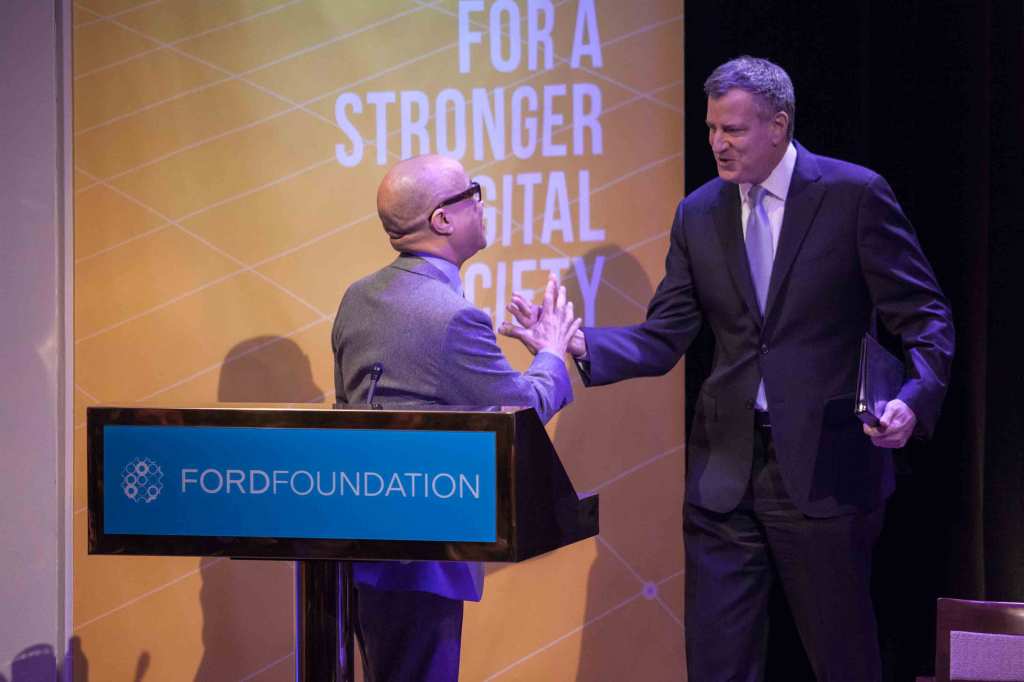 Martin Dixon
Martin DixonMedia justice activists and media policy reform advocates have been in a decade-long fight for an open, inclusive Internet. It’s largely because of their grassroots organizing efforts and activism that nearly 4 million people have raised their voices in support of an open Internet through online petitions, actions, and civic engagement.
On February 4, FCC chairman Tom Wheeler confirmed that he would propose new net neutrality rules based on Title II of the Communications Act, a protection that advocates have been pushing for. Reclassifying the Internet as a Title II service means it would be considered a basic telecommunications utility, like telephone service. Title II would not only restore the nondiscrimination principle of the Internet, but also gives the FCC authority to preserve universal and affordable access, foster competition, and ensure consumer protections. The full FCC commission will vote on this proposal on February 26.
And so NetGain, an event held at the Ford Foundation last week, couldn’t have come at a better time. At the heart of the gathering was a joint declaration, signed by foundation leaders, that calls for philanthropy to play a leading role in ensuring that the Internet is used for the common good.
New York City’s Mayor Bill de Blasio—a staunch advocate of net neutrality, closing the digital divide, and making the Internet accessible to all—delivered a keynote address to a standing-room-only audience. He emphasized that public policies haven’t caught up with widespread inequality, acknowledging that New York City is home to many people who can’t afford Internet access, leaving many opportunities out of reach. The mayor laid out the city’s innovative model to close the digital divide, which includes a new effort to transform pay phones into Wi-Fi hot spots—creating what would be the fastest municipal Wi-Fi in the country—and wiring 400,000 public housing residents to high-speed Internet.
Gwen Ifill of Washington Week moderated a panel focused on “The Internet, Philanthropy, and Progress,” which brought together the NetGain foundation partners to talk about their future work. The Ford Foundation’s President Darren Walker talked about the risks of people’s private data being collected, owned, and monetized by private companies, and stressed the need to cultivate tech talent specifically to work on that and related issues. And he expressed optimism about using technology to further social change, reminding us that in 1965, NBC affiliates decided not to broadcast a speech by Martin Luther King Jr.—while today, movements like #BlackLivesMatter don’t need an intermediary. Activists in Ferguson have taken to the streets and used social media to organize and raise the profile of their issues.
The panelists agreed that foundations should be problem solvers in this area, helping to spot talent and build durable institutions. Mitchell Baker of the Mozilla Foundation pointed out that government has an important role to play in this.
Shifting gears, presenters queued up for five-minute presentations focused on challenges and opportunities ahead. Ethan Zuckerman, director of the MIT Center for Civic Media, kicked things off with a short talk that celebrated the possibilities of the Internet but also warned of its dangers. Emily Bell, director of the Tow Center for Digital Journalism, emphasized the need to help journalists understand the challenges they face in negotiating technology, and the importance of transparency in a world where the way people get their news is rapidly changing.
Alicia Garza, special projects director of the National Domestic Workers Alliance and co-founder of #BlackLivesMatter, talked about the origins of that call to action. “[#BlackLivesMatter] is rooted in the experiences of black people resisting the dehumanization of black people,” she said. “It is more than a hashtag, it’s a principle.” There have been more than 500 direct actions at the local level, as part of this larger movement for black lives. Garza affirmed the importance of an open Internet, explaining that it has allowed movements to emerge online, but cautioning that it is also a site where activism can be suppressed. Sunil Abraham, executive director of the Centre for Internet and Society, focused his talk on the challenges to Internet access in rural India, where people often have just four or five hours of electricity a day, and so rely heavily on mobile phones to get online.
Laura Poitras, director of the acclaimed documentary CitizenFour, and Christopher Soghoian of the ACLU discussed how Edward Snowden’s revelations have made us all take the issue of digital surveillance more seriously. Poitras began by thanking the makers of Tor, free software that allowed her to communicate with Snowden securely, and highlighted how Tor and the Free Software Project—which allows us to use encryption to chat and e-mail—are protecting privacy and serving the public good.
“The Internet is not a thing,” Sir Tim Berners-Lee, inventor of the World Wide Web, told guests at a lunchtime discussion celebrating 25 years of the Internet. “The Web is a social manifestation. It is monitored by social behavior.” His comments speak to the responsibility felt by everyone who gathered for this event: to use technology to increase access to knowledge, and make all our systems more participatory and responsive. The NetGain Challenge invited ideas about how to make a more open, accessible Internet a reality—read more about The NetGain Partnership.
Betty Yu is a New York City–based filmmaker, multimedia artist, media educator, and longtime community organizer.
